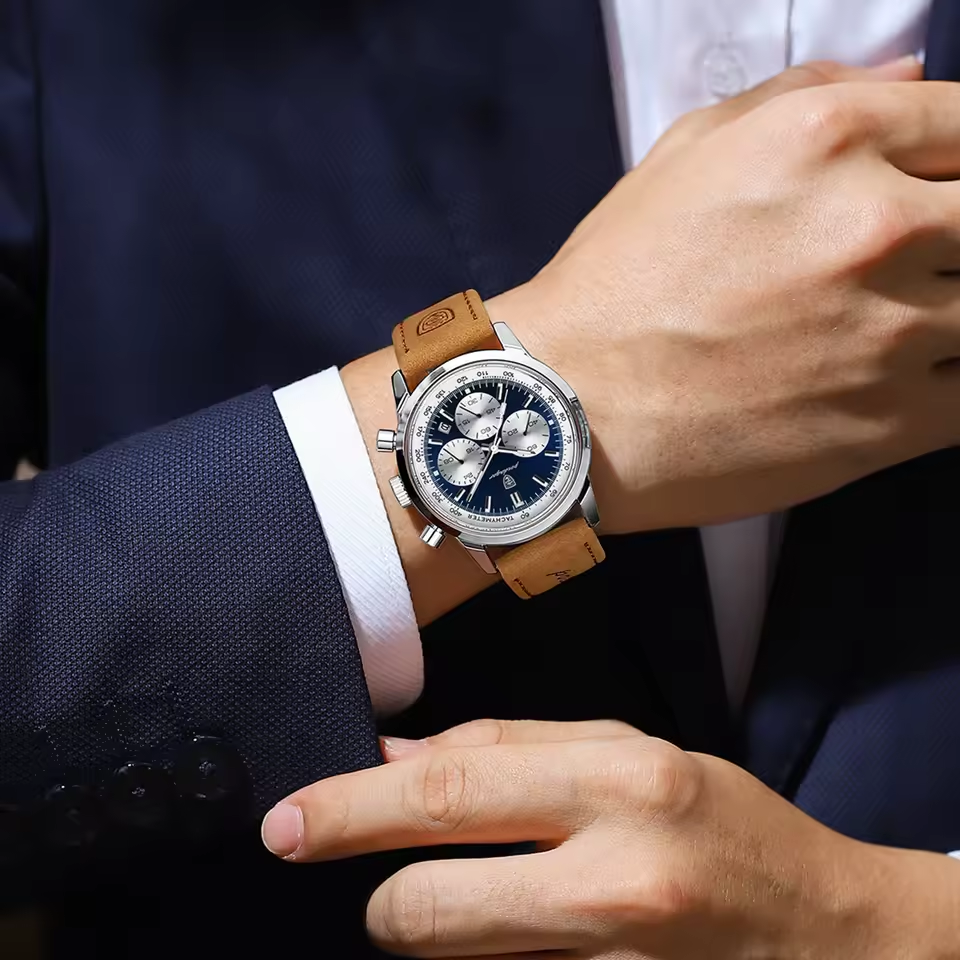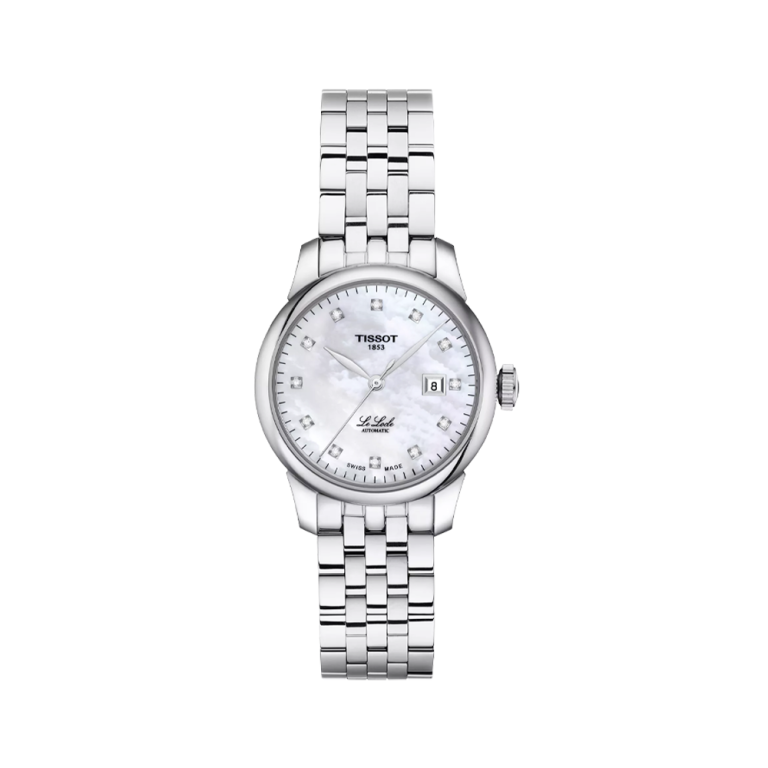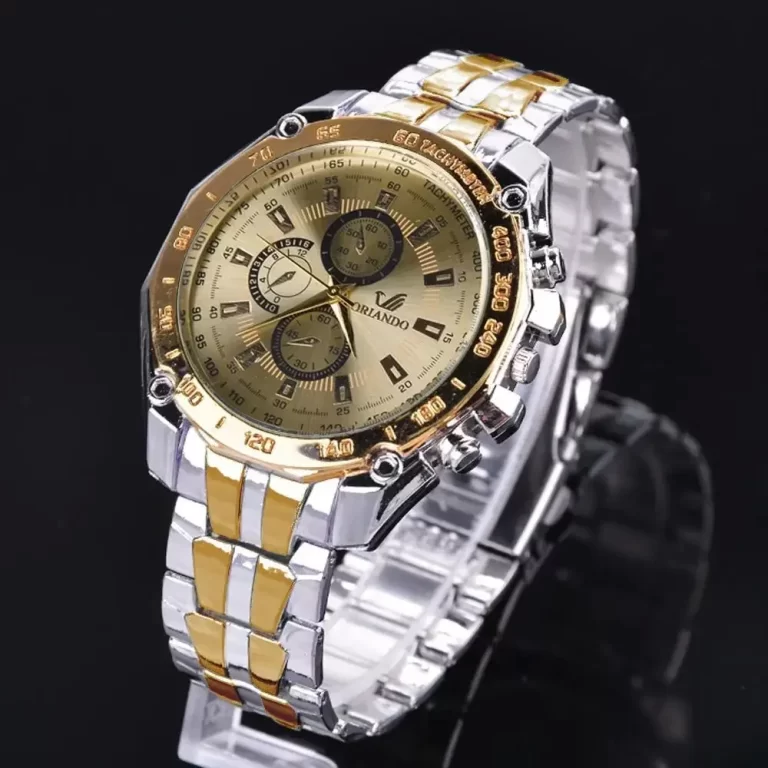Quartz Watch Fundamentals
In the world of timekeeping, quartz watches hold a significant place. With their modern technology and practical features, they cater to a broad audience seeking both style and functionality.
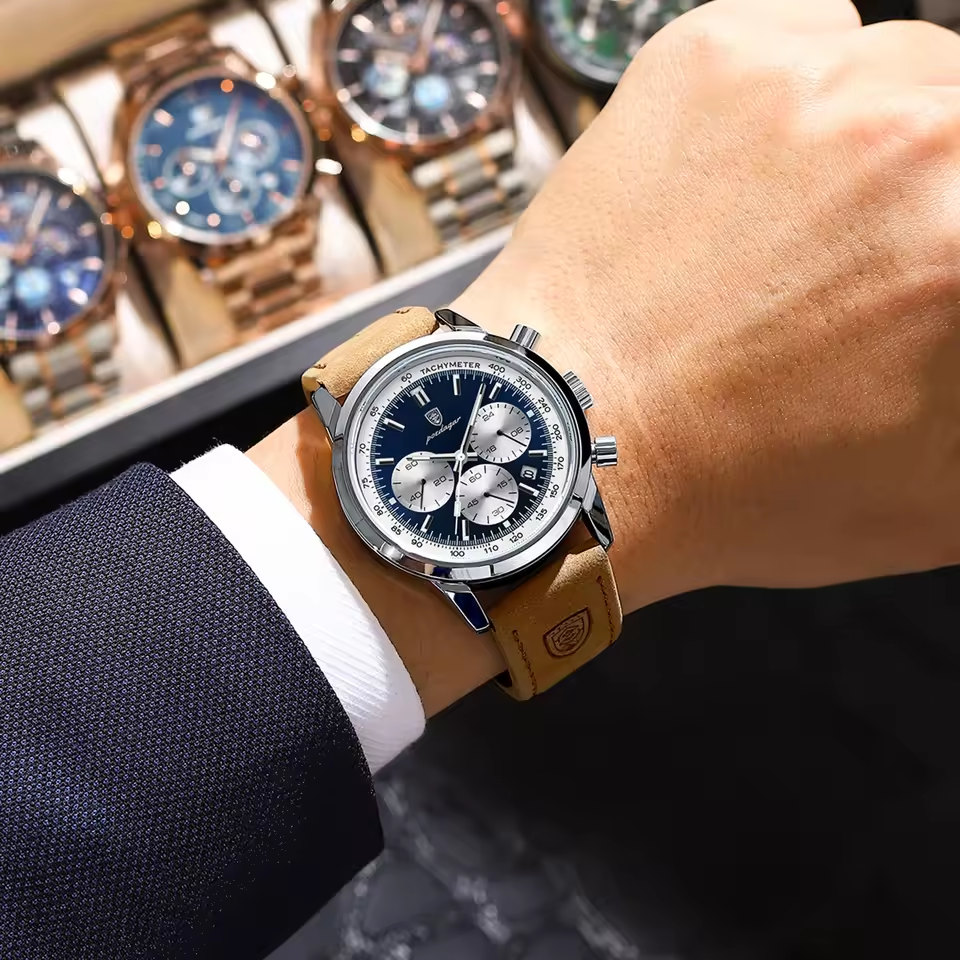
How Quartz Watches Work
Quartz watches operate on a simple yet ingenious principle. They harness a battery to send an electrical signal through quartz crystal. This creates consistent vibrations that drive the watch’s timekeeping mechanism. It’s this steady pulse that keeps a quartz watch ticking with remarkable precision.
The Reliability and Maintenance of Quartz Watches
Quartz watches are known for their reliability. They require minimal upkeep, usually just a battery change every few years. Unlike their mechanical cousins, quartz watches are impervious to the wearer’s motion, so they keep ticking without manual wind-up or movement-powered assistance.
Popular Quartz Watch Brands and Models
Several brands have championed the quartz movement, offering an array of models that cater to diverse tastes. Citizen’s Eco-Drive range, for instance, marries sustainability with quartz technology, running on solar power. Other brands like Seiko, Casio, and Timex offer durable and stylish quartz watches that suit both casual and formal wear. Renowned for their accuracy and affordability, these brands have solidified the popularity of quartz watches in the market.
Understanding Automatic Watches
Automatic watches charm enthusiasts with their intricate craftsmanship and self-winding capabilities.
The Mechanism Behind Automatic Watches
Automatic watches are powered by a mainspring, wound by the movement of the wearer’s wrist. No batteries are needed, making these watches a marvel of engineering with their complex system of gears and springs.
The Pros and Cons of Owning an Automatic Watch
Owning an automatic watch is owning a piece of art that displays time. The pros include their mechanical beauty and the sweeping motion of the second hand, signifying no battery is used. However, they may need regular servicing, and if not worn, they could stop running.
Notable Automatic Watch Brands and Collections
Brands like Rolex, Omega, and Tag Heuer define luxury with their automatic watch collections. These timepieces are prized for their design and longevity, often becoming treasured heirlooms.
Comparative Analysis: Quartz vs Automatic
In this section, we’ll compare quartz and automatic watches based on accuracy, performance, maintenance needs, cost of ownership, and the impact of lifestyle on watch choice.
Accuracy and Performance Compared
Quartz watches are champions of precision, often losing just a few seconds per month. Their electronic impulses ensure steady timekeeping. On the flip side, automatic watches may lose a few seconds daily but offer a smooth, sweeping second hand. Brands like Seiko and Omega invest heavily in research to optimize the accuracy of both quartz and automatic watches. Regardless, for sheer accuracy, quartz often has the edge.
Maintenance Needs and Cost of Ownership
Quartz timepieces win in terms of low maintenance. They usually need a battery change every couple of years, which is quite affordable. Automatic watches, however, require winding and regular servicing to maintain their intricate mechanisms. While servicing costs more, automatic watches score on longevity and emotional value.

The Impact of Lifestyle on Watch Choice
Your daily routine influences your watch choice. If you’re always on the move, a quartz watch is hassle-free and ready to wear. An automatic watch is suited for those who enjoy the craftsmanship and can regularly wear the watch to keep it wound. For the busy professional, a quartz may be more practical, while watch aficionados might favor the mechanical allure of an automatic.
Trends and Technological Developments
In the evolving world of horology, both quartz and automatic watches witness constant innovations. Technological strides shape the present and forecast the future of timekeeping.
Innovations in Quartz Watch Technology
Quartz watch technology is not static. Recent years have seen improvements in battery life and precision. Solar power integration, as seen in Citizen’s Eco-Drive series, eliminates the need for constant battery changes. Watches now harness light as a power source, enhancing their appeal among eco-conscious consumers. Bluetooth connectivity in quartz watches has become prevalent, allowing for seamless syncing with other devices for added functionality.
Advances in Automatic Watch Mechanisms
Automatic watches have similarly benefited from technological enhancements. The focus has been on improving the power reserve, so watches keep ticking longer when not worn. Companies are also working on the miniaturization of parts, aiming to make slimmer profiles without compromising the watch’s integrity. Innovations in materials, such as silicon components, boost the resilience of these watches against magnetic fields, a common issue that affects accuracy.
The Future Outlook for Watch Movements
Looking ahead, the future of watch movements appears promising. Hybrid models combining quartz accuracy with automatic energy harnessing are on the horizon. These hybrids offer the best of both worlds, addressing the demand for precision without the need for regular maintenance. Advancements in 3D printing could also revolutionize watchmaking, offering bespoke movement components and potentially reducing costs. As technology keeps advancing, the gap between quartz and automatic watches may narrow, offering a wider selection for watch enthusiasts.
The Collector’s Perspective
Collectors of watches value the craftsmanship and history behind timepieces.
The Value of Craftsmanship in Watch Collecting
For many collectors, the appeal of a watch lies in its craft. The making of an automatic watch is an art, a tradition passed down through generations. It’s the intricate assembly of gears and springs, all working in unison, that fascinates collectors. Each piece tells a story, a testament to the watchmaker’s skill.
A quartz watch, while precise, lacks this narrative. Its mass-produced movement doesn’t require the same skilled handcrafting. For collectors, the beauty lies in complexity and the human touch that crafted the mechanism inside an automatic watch.
Why Collectors Prize Automatic Watches
Automatic watches hold a special place in the hearts of collectors. They represent tradition and the pinnacle of timepiece technology. Collectors are often drawn to the smooth sweep of the second hand, unique to automatic timepieces. This elegant motion is more than just visual; it reflects the seamless operation of the internal mechanics.
Durability is another reason automatic watches are prized. With proper care, they can run for decades, outlasting several quartz batteries. Many automatic watches become family heirlooms, handed down through generations, holding not just time, but memories.
The joy collectors find in automatic watches is about more than utility. It’s about owning a piece of history, craftsmanship, and a symbol of the fine art of watchmaking. They are not just keeping time; they are keeping tradition alive.
Making the Right Choice for You
Navigating the realm of watches can be complex, but aligning a timepiece with your personal style and daily life simplifies the decision.
Assessing Your Personal Style and Needs
Choosing between a quartz and an automatic watch should reflect your personal style and daily routine. If you prioritize precision and convenience, a quartz watch aligns well; it offers accuracy and low maintenance with battery changes infrequent. However, if craftsmanship captivates you and you don’t mind the upkeep, an automatic watch can be an enchanting choice, showcasing traditional watchmaking skills.
For those who have a dynamic lifestyle and need a ‘grab and go’ option, quartz will serve you well. Conversely, if you enjoy the ritual of winding your watch and appreciate the mechanics, an automatic may suit you better. Reflect on the environment you’ll wear your watch in too; quartz watches are robust against shocks making them suitable for active settings, whereas automatic watches are often preferred for their sophisticated aesthetics in formal settings.
How to Decide Between Quartz and Automatic
Deciding comes down to balancing practicality with aesthetic preference. Quartz watches stand out for accuracy and ease, ideal for those with a bustling life or for whom timekeeping precision is crucial. Automatic watches may lack some precision but offer an unmatchable charm, suited for enthusiasts and collectors who revel in complex mechanics.
Consider your budget as well; quartz watches are generally more affordable, while automatic watches can be an investment. Weigh the convenience against the service costs, keeping in mind automatics may need professional maintenance. Lastly, think about the longevity and emotional value; an automatic watch can be a lifetime piece whereas a quartz might serve more immediate, practical needs.
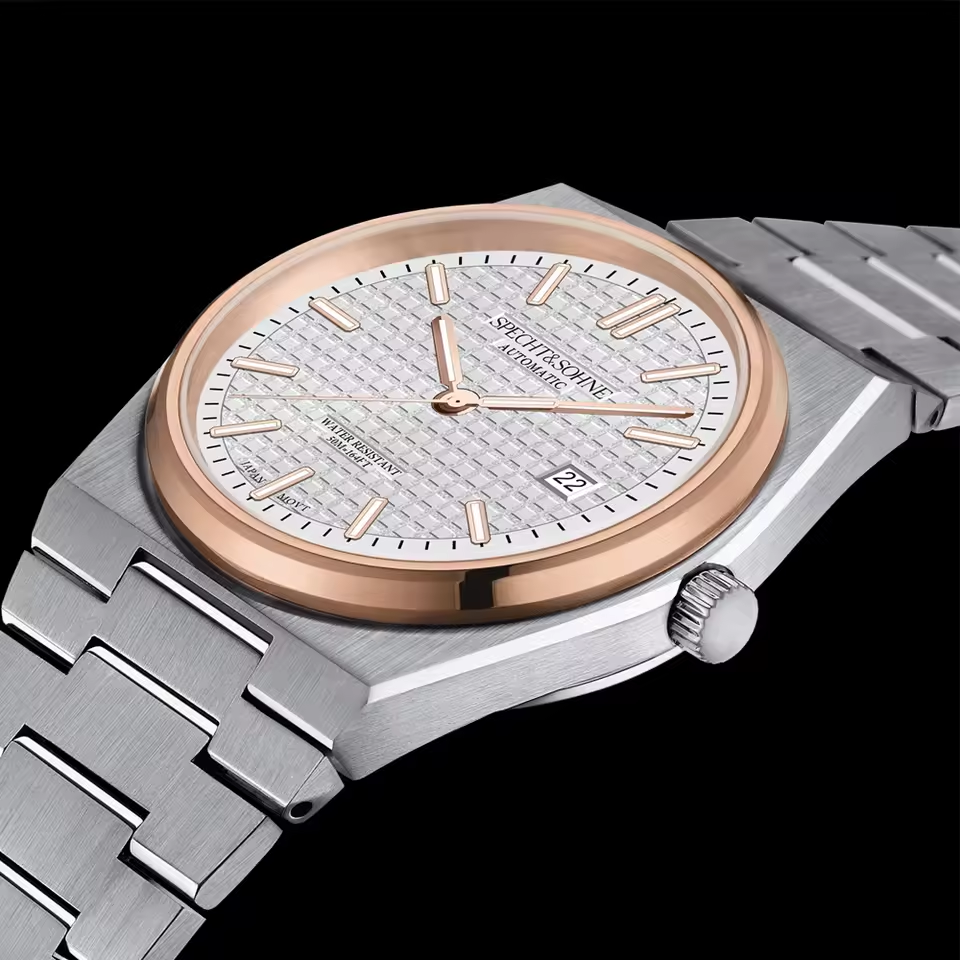
Ultimately, the choice of quartz vs automatic watch is your personal narrative. Whether you lean towards modern efficiency or classical artistry, your watch will be a companion that echoes your individuality and rhythm.
